#hope utopia
Text




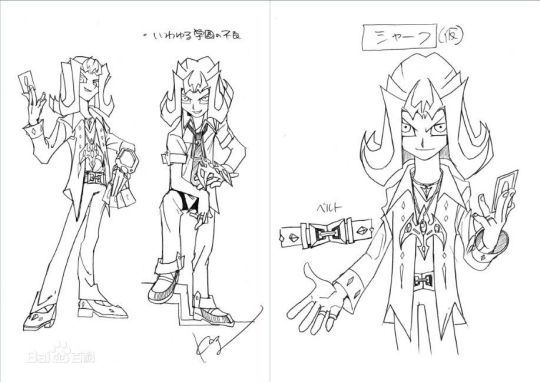

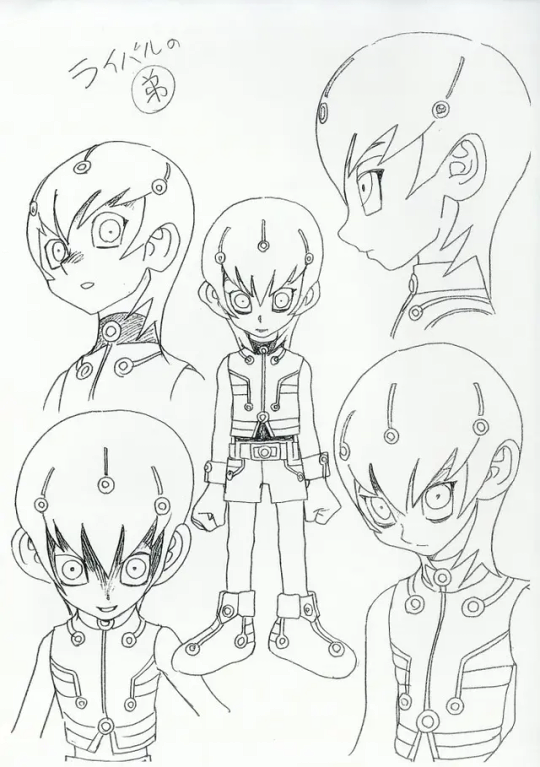
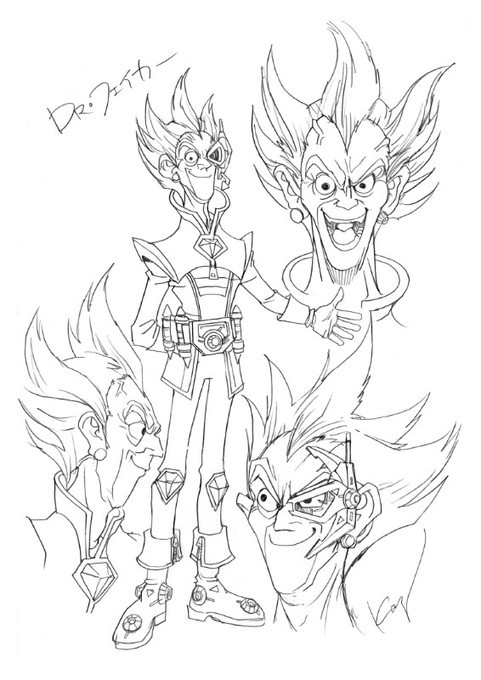
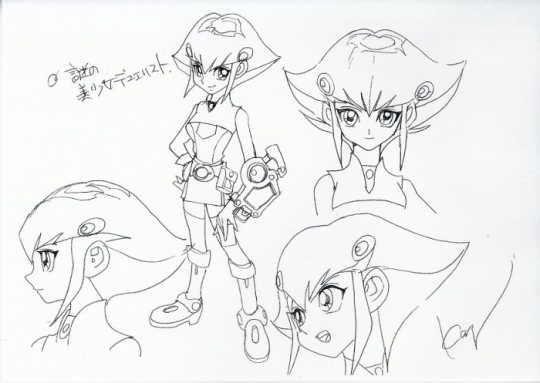
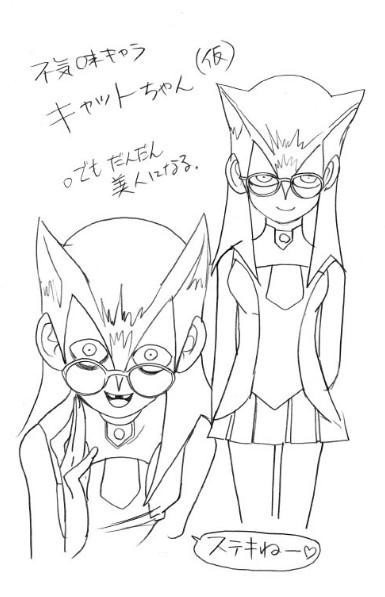

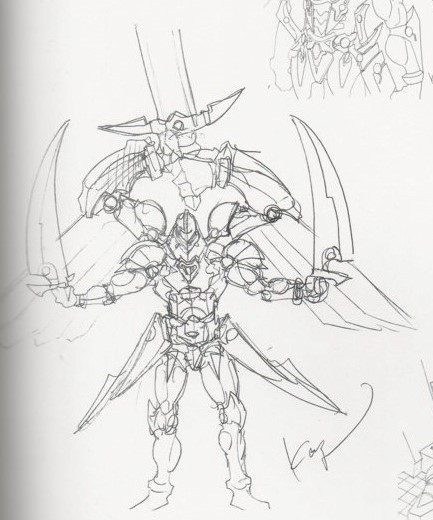
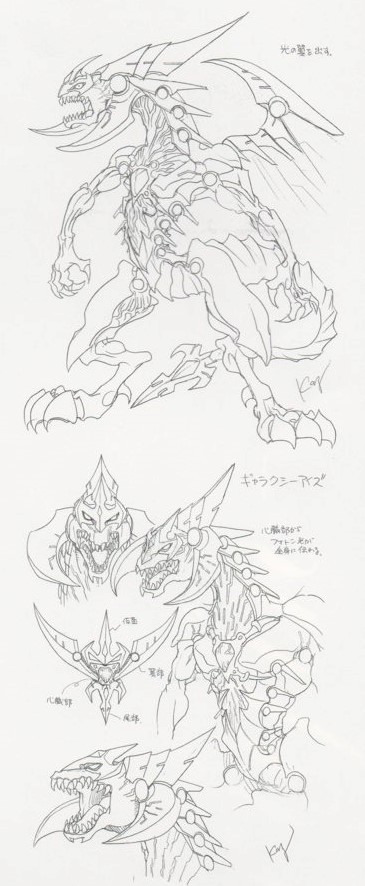
it's well known that Kazuki Takahashi created the protagonist designs for DM, GX and 5DS, but he also worked on a significant portion of Zexal's cast, designing Yuma, Astral, Zexal I, Shark, Kaito, Kotori, Faker, Haruto, Anna, Cathy, as well as Hope Utopia and Galaxy-Eyes Photon Dragon. (He also appeared to design a very different early version of "Mizael" but more on that in another post)
Some of these sketches were seen before Zexal started airing in Japan, while others were revealed in Kazuki Takahashi's artbook "Duel Art"
#zexal#yugioh#yuma tsukumo#astral#kaito tenjo#ryoga kamishiro#reginald kastle#kite tenjo#haruto tenjo#dr faker#anna kaboom#anna kozuki#hope utopia#galaxy-eyes photon dragon#yugioh zexal#kazuki takahashi
156 notes
·
View notes
Text
The Power Of Media

I need do address one thing, because I see that kinda mindset creep up again and again.
Basically, under postings about utopian media, be it Star Trek, Solarpunk, or - heck - just bare Hopepunk, sometimes people will just go: "Media does not do shit. It does not change the world."
And that just is... demonstrably fault and a very defeatist attitude.
Now, one thing first: Yes, media on its own will not change the world. It will not. If you have this mindset, you are right in so far. We can have endless amounts of hopeful media and the world will not change from it.
But...
We live in capitalism. Its power seems inescapable. So did the divine right of kings. Any human power can be resisted and changed by human beings. Resistance and change often begin in art, and very often in our art, the art of words.
- Ursula K. LeGuin
This quote of Ursula K. LeGuin is very powerful to me. Because it really captures the issue very well.
See. Right now we get bombarded with capitalist propaganda left and right. It already starts in school, we will often get it at home and obviously in media again and again.
It is so hard to escape, that to many it is hard to imagine that there ever could be anything else. I mean, we even have the issue within Solarpunk. When I read through those Solarpunk Anthologies, I will again and again find stories, that feature either capitalist worlds - or a world that has to be rebuild after the apocalypse. Because people really struggle imagining how it could be otherwise.
And this is why fiction is so important. Why Hopepunk is so important.
A lot of young people right now are able to see that the system is broken, that it has left them behind. Most young folks, who do not come from generational wealth, see that they will under the current system never own their own house. Their own retirement seems to be rather unlikely. And that is, if they do not die before from either the effects of climate change, from some pandemic through which we have to work because line needs to go up, or just in general because the health care system does not take care of them.
And these young people are willing to fight. They are. But right now they are only fighting against a system. They do not know what they fight for.
I know, for some this might sound like a small thing. But it is not. Especially not in a world, where more and more people are struggling with their mental health.
People need hope.
And again: No, it is not enough on its own. Just hopeful fiction on its own runs the danger of just being endless escapism.
We also need to offer mutual aid for each other. We also need to organize. And, yeah, we need to protest and actually get out there to fight.
But don't underestimate the power of fiction, when it comes to giving people something to fight for.
We know that media and stories have these powers. It is, after all, why those in powers dripfeed us the kinda stories that vilify those, who want to change the system. That tell us, that "everything is fine, okay, just trust the good billionaires" and what not. Because they understand this power.
And we should not leave this power to them along.
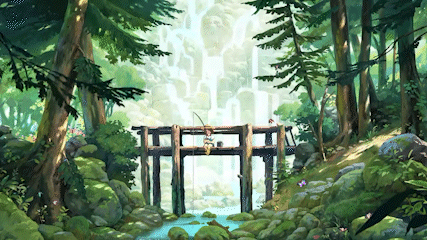
#solarpunk#lunarpunk#hopepunk#utopia#utopian fiction#the power of fiction#the power of media#hope is a dangerous thing#it only needs a spark#fighting climate change
250 notes
·
View notes
Text
just remembered the time in my high school science fiction class where we were put in groups and had to figure out what a utopian society would look like for us and that across the room I could hear one of the students in the other group bragging that in his utopia the elderly and disabled and anyone who couldn't contribute to his idea of a utopia would be left in a deserted area to fend for themselves. the project was part of a lesson on utopia vs dystopia and was fucking leading up to us reading. The Giver. The Fucking Giver. the irony cannot be clearer and also I hope he's miserable.
#got reminded by the last post i rbed but its a hopeful/positive post so im not talking about it on there#mine#ableism#the giver#how did you be asked to create a utopia before reading 'the giver' and#1. speedrun right into making fascism#2. prove the point of the fucking giver#fuck you h***** fuck you to hell
73 notes
·
View notes
Text
Week one of keenswimmers2023
Prompt: Dystopia/Utopia.
I personally decided to do Dystopia and I know I am late but I can explain-
No actually I can't...dosen't matter, It's there.
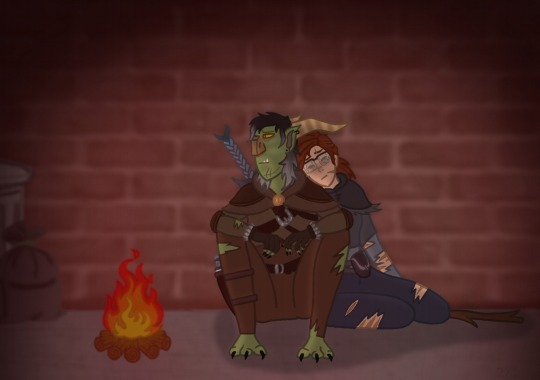
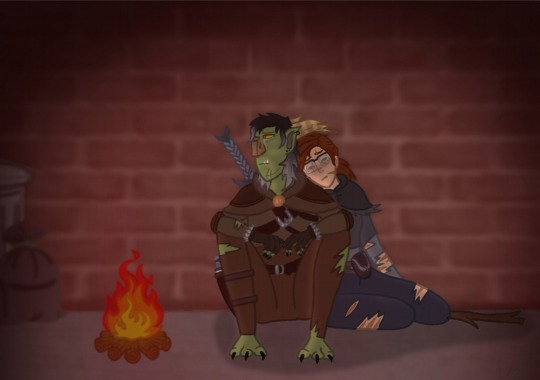
I uhm decided to do a world were Gunmar broke free in season one and actually killed Jim. Strickler obviously was shocked but we all know that season one him is a ...well...kind of a dick, wich means he "got over it"...until he realized how fucked up this actually is.
He did keep his promise tho, he protects Barbara. He eventually tells her that he is a changeling but he bends the truth how he needs it to be. Strickler leaves Gunmar after finding out that he will kill every human and he decided (after veeeeery looooong thoughts) that Barbara is more worth than his selfish plans.
Barb would eventually find out the truth after Strickler left Gunmar for her and he tries to survive or at least he is trying to keep her alive. Barb can't forgive him. She won’t forgive him.
How does it end...? They both probably die...
...
Anyways have fun with this :D
Close up from them just bc:
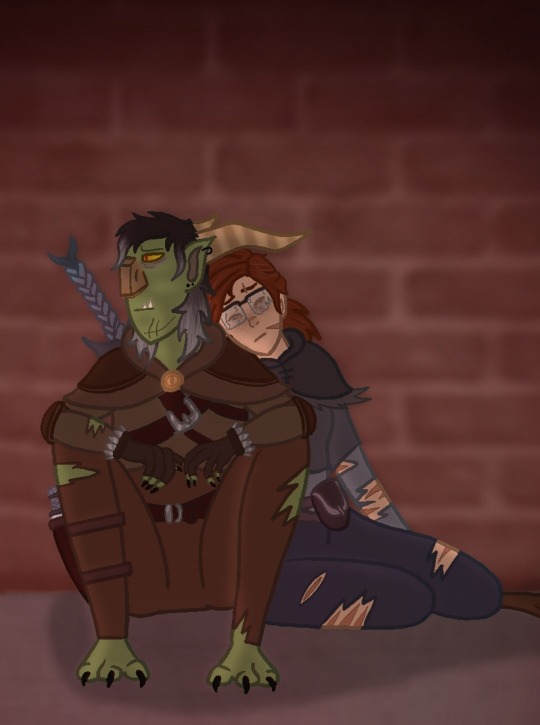
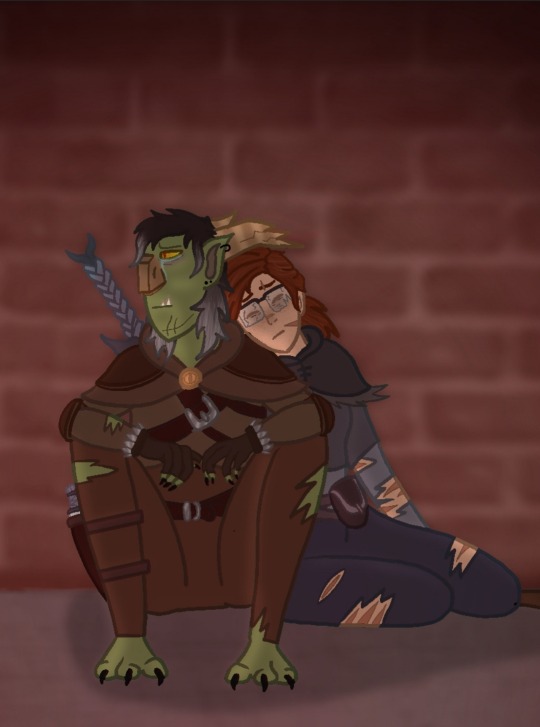
And yes...Barb has a stick...she couldn’t find her broom.
Ohhh and did Strickler broke off one of his horns? Yes he did. Wanna know how? Gunmar did it after Strickler refused to tell him were he hides Barbara.
Barb's scars are easier to see but Walt tends to jump infront of her. He fights for her as long as his body works.
He gives her food and water as much as she needs and takes what's left or eats trash. He refuses to sleep, to watch over her. He holds himself awake as long as nessecary until his body can't take it.
:D
#trollhunters#walter strickler#toa strickler#barbara lake#toa trollhunters#stricklake#stricklander#strickler#waltolomew stricklander#tales of arcadia#keenswimmers2023#stricklake month#week one: Dystopia or Utopia#well I guess I said everything#hope you like it tho#I put my soul into it..-#I try to be more in time next week#but anyways#luv you <3#And love them *-*#hope you like the trauma#And I mean we all love Stricklake angst/trauma and suffer#Oh and Barb falls in love with him and he tells her the truth right after their first kiss in troll form#He slaps him and basically tells him to fuck off#Strickler trys to explain himself but how could he ever explain that he was actively at fault for her sons death#well and the rest is on you ;)#adds to this story line are appreciateed#give me the whole trauma#come on make me cry with all the dark adds to the story that you come up with
84 notes
·
View notes
Text
The Role of Memories
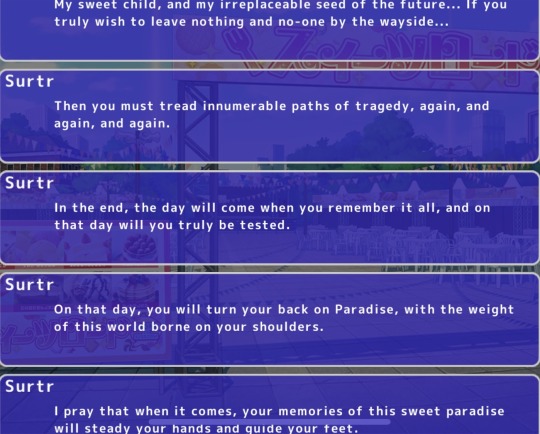
(Valentine Extravangaza — Surtr's internal monologue)
My sweet child, and my irreplaceable seed of the future... If you truly wish to leave nothing and no-one by the wayside...
Then you must tread innumerable paths of tragedy, again, and again, and again.
In the end, the day will come when you remember it all, and on that day will you truly be tested.
On that day, you will turn your back on Paradise, with the weight of this world borne on your shoulders.
I pray that when it comes, your memories of this sweet paradise will steady your hands and guide your feet.
I find this prediction of Surtr's rather haunting. We know from the main quest what the cost of bearing memories is. We even know what the cost was to MC—not simply the forgetting of their own prior to their summoning, but Lil Salomon too, that feeling of loneliness and incompleteness that follows them even in events, where there should only be happiness.
What will it cost them to take in all of the memories they've lived? And would this include the memories of the Exiles too, the lives they've never lived, but that nonetheless belong to them?
But I also find this hopeful too. This remembrance will put them directly on par with WR and Pillars. And though that last sentence in this prediction is merely a hope, I think it will come true: though the burden will be heavy, it will also ultimately steady their hands and guide their feet. Despite the personal cost, MC will ultimately achieve their goal—save every single person in Tokyo and break through the loops. And I think "every single person" will include MC themself.
#housamo#events lore#main quest lore#lore trivia/speculation#mc trivia/speculation#valentine extravangaza#i love the 'turn your back on paradise' line#not only because fuck eden and utopia#but because paradise isn't paradise if suffering exists. paradise isn't paradise if one person has to bear it all.#(psst read 'the ones who walk away from omelas' by ursula k le guin)#paradise can't exist in a real livable world. there is no such thing as life without pain and sorrow#but a world of hope? a world where people are allowed to hope and their hopes may come to fruition?
21 notes
·
View notes
Text
You can’t praise Goncharov and it’s great effects and picture language, without mentioning the 1930s classic “Utopia” by Edward Truman.
#goncharov#goncharev#die drei fragezeichen#drei fragezeichen#labyrinth der götter#utopia#i hope I have some follower who will get that :D
181 notes
·
View notes
Text
This glance therefore confirms that man everywhere is still living in prehistory, indeed all and everything still stands before the creation of the world, of a right world. True genesis is not at the beginning but at the end, and it starts to begin only when society and existence become radical, i.e. grasp their roots. But the root of history is the working, creating human being who reshapes and overhauls the given facts. Once he has grasped himself and established what is his, without expropriation and alienation, in real democracy, there arises in the world something which shines into the childhood of all and in which no one has yet been: homeland.
Ernst Bloch, The Principle of Hope (1959)
37 notes
·
View notes
Text

Magical Girl OC Sticker Sheet!
#giant ass watermark since ai art stuff#also im printing this#fairy utopia calling keeps au#perianthart#perianthposts#magical girl#oc#original character#precure#inspired#(oc) Kiku the Caller of Longevity and Permanance#(oc) Galanthus the Caller of Hope and Reassurance#im not tagging all of these goobers#original art#ocs
10 notes
·
View notes
Text
book review - ecotopia by ernest callenbach
Ecotopia, written by ernest callenbach in the 1970s, describes a world in which the land regions previously known as northern california, washington, and oregon secede from the rest of the united states and create their own nation, the nation of Ecotopia. the principles of sustainability and circular economy are central to this new nation.
here are my thoughts on some things covered in the book, i hope that this reaches someone else who's read it and we can share thoughts!
(this will include spoilers. however, the nature of the book is not a narrative, and is rather a presentation of ideas. therefore reading this post will not ruin the book for you if you choose to read it)
one of the greatest thought experiments Ecotopia undertakes is that of ideal urban planning. in that respect, the book is pretty cool! they hypothetical nation of Ecotopia describes San Francisco as a central city hub, from which spokes of public transport emerge and run to smaller city towns. these towns take the place of suburbs, which were razed during the country’s Independence / reconstruction era. (wooooo!!) public transport abounds and runs at a high speed of 30 mph, which is all you really need since the urban centers are so densely built and multi use. Between city towns are managed forests (actual forests! not monocultures) as well as natural land which has been allowed to restore itself.
people live in flexible communes that typically work together to produce something, whether that be a farming commune, fishing commune, artist communes, or business / science communes that invent things. everyone has a universal base income that is just minimal enough to reasonably get by, allowing people to pursue art or a risky startup without fear of dying. which i think is really cool! necessity breeds innovation yes but you need security too. work culture in Ecotopia is also vastly different, as the boundary between work and leisure and personal time is eroded, which may seem like a bad thing but the consequence of the UBI system means that most Ecotopians actually Like their work and choose to do it of their own free will. crazy huh.
houses are typically made of wood, which to me raised a suspicion flag, cause this is the Bay Area we’re talking about, which is Humid as Shit, and the Ecotopians have phased out paint due to it containing heavy metals. which good for them i guess but those houses are gonna rot lmfao. i took the liberty of imagining they are proofed with sealant made from the biodegradable, non petroleum based plastic the Ecotopians had developed and manufactured. while wood is the building material of choice, houses are also built from large tubes of insulated bioplastic, which are joined at the whim of the family or commune creating the house. (there are no architects, everyone builds their own houses themselves to suit their needs.) these houses are cheap and accessible, and zoning laws seem to be nonexistent, making homelessness a nonissue.
in terms of materials, everything in Ecotopia is renewable and has a full zero waste lifecycle. wood is the material of choice. the only metal Ecotopians use comes from scavenged cars and machinery of the pre seccession era. Ecotopians still manufacture plastic, but most kinds of it are fully biodegradable in a few days. when a lasting material is needed, a different type of plastic is used; this kind will not degrade until it is in full contact with soil. given how important disposable plastic is for applications such as research, i'm glad this was considered and accounted for in this book instead of throwing it off as a "we don't need plastic anymore kumbaya" kinda vibe.
culture wise, there is a lack of emotional restraint which the book’s narrator, a visitor from NYC, frequently comments on. hugs and physical affection between all relationships and genders are normalized. there also seems to be an insistence on small talk as a way to humanize those working “lesser skilled” jobs. honestly i found this a bit annoying, as i don’t think small talk is necessarily indicative of human connection, and that a truly emotionally attuned people would be okay with giving space when necessary. but i thought it was nice to acknowledge that all people are people, even while working “subservient” jobs.
ok so those were the things i liked.
criticism #1.
WILLIAM WESTON STOP BEING A FUCKING MISOGYNIST CHALLENGE
alternatively:
ERNEST CALLENBACH WRITE ONE (1) WOMAN WHO ISN’T A SEX OBJECT CHALLENGE
NO, THE WOMAN WHO YOU DESCRIBED AS UNATTRACTIVE WHO ALSO HAPPENS TO BE IN A POSITION OF POWER DOES NOT COUNT
god jesus christ
over the course of his adventures, journalist William Weston encounters many fellows (men) and new friends whom he talks around the fire with (men). he also encounters Marissa, a beautiful wild woman, exotic and mysterious who runs through the forest, cares deeply for trees, stares into his soul with her plain face and round dark eyes, and has sex with him twenty four hours three hundred sixty five days a year.
he also encounters Linda, an attractively sarcastic yet caring nurse, who nurses his injuries, jacks him off, and consumes him with thoughts of when he “will be healed enough to fuck her properly”. (direct quote)
in addition to the misogyny, there appears to be a fair amount of gender essentialism in Ecotopian society, something I found disappointing. Ecotopian clothes are sharply gendered. (from my understanding of Ecotopian values, i’d expect everyone to be wearing skirts due to the ease of manufacture and resulting ease of movement.) women are described to have an “air of fertility” (yes, actually). the governing party is made up of women, due to womens’ “natural competency regarding cooperation and diplomacy rather than competition”. the only sport in the country, the ritual war games, is barred to women. (it’s actually remarked later in the book that in Ecotopian psychology offices, it is often women who come in with issues of untamed aggression, and attributes it to their exclusion from the games. i wonder what a solution could be 🤔) thankfully work is not gendered, but it appears the social spheres of men and women rarely intersect, as Weston socializes and discusses ideas with a fair amount of men, and no women. perhaps for the better, as he’d be too distracted trying to fuck them to have a discussion of any substance.
queer pairings are also mentioned offhand, but they serve the purpose of emphasizing the Ecotopian's open attitudes towards sex and intimacy. queerness is treated as a sexual quirk rather than as an orientation.
in addition to the disappointing sexism / heterosexism, there's a good amount of racism. different races live segregated. although this is a conscious choice by the inhabitants, it still strikes as somewhat odd that there wouldn't be a way for humans to maintain their culture while living in an integrated society. many of the barriers to race equality in our current system are abolished in Ecotopia; the cheapness of the bioplastic houses makes it accessible for anyone to own a house anywhere, and the ease with which people can start their own enterprises reduces employment barriers significantly. therefore i'd expect integration between races to be a significant achievement of the Ecotopians. the writing itself is also racist. callenbach makes distinctions while describing the cultures of the nonwhite populations that make it clear that white is the default of Ecotopia, and all other cultures are side notes. also, callenbach makes no mention of an Ecotopian prison system (an aspect of society that no doubt merits analysis) until he mentions the Black community. sir what is up with that 🤨
there's also a lot to be said of callenbach's treatment of Indigenous ideas. the Ecotopians take a lot of inspiration from classic Indigenous principles, such as living in balance with the earth's natural resources and respecting nonhuman life, and Indigenous clothing styles. however, this feels rather appropriative rather than appreciative, and there are no actual Indigenous characters in the book. i would expect that such an empathetic society which takes direct principles from Indigenous culture would appreciate and honor the Indigenous people within that society rather than just shamelessly taking their culture, especially given the context that Ecotopians are ex citizens of the united states, the country which caused the Indigenous communities in that area so much harm.
overall, i think this book's strengths lie in its rethinking of what society could be like without work as its central focus. i love the UBI system, the reduced work week, and the attitude of work as something to enjoy rather than something to get over with. i also love that the nation's economic fall wasn't skipped over. i think its important to realize that many policies which would improve human health and quality of life would also lower our GDP, and that maybe that's perfectly fine. maybe human lives matter more than how rich a nation is. despite all these strengths, however, the sexism and racism cannot be overlooked; they made me almost put the book down several times. this book is clearly a product of its time, written by a white man. in keeping with good critical thinking practices, its important to recognize what ideas are good to keep and what needs to be thrown out.
tldr: great ideas about an alternative structure for society, unfortunately sexist and racist as well. 6/10
#gonna spam tags in hopes that it finds someone who's read it •_•#ecotopia#ecopunk#solarpunk#urban planning#utopia#sustainability#ecology#sci fi novels#sci fi#environmentalism#currently reading#books#bookblr#politics#public transportation#ernest callenbach#UBI#book review
41 notes
·
View notes
Photo

Put him down, Yuma. He’s still angry
114 notes
·
View notes
Text
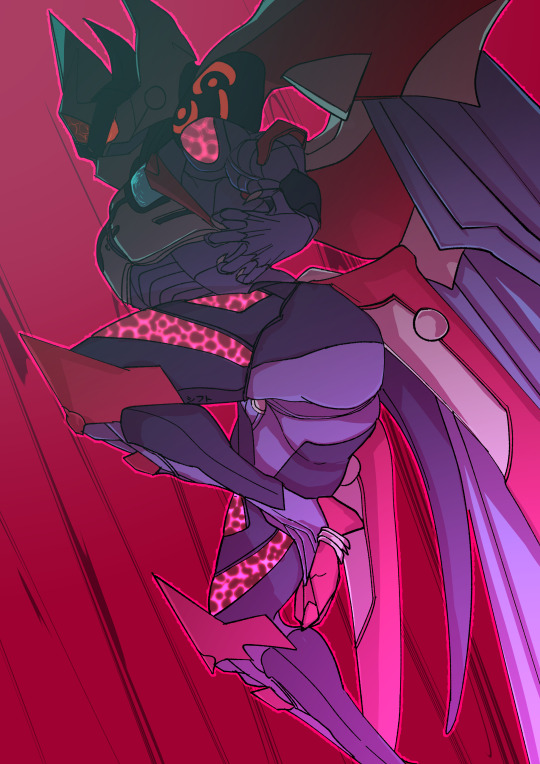
215/365
@zexalmonth 2023
2nd: The Magician upright | Manifestation, resourcefulness, power, inspired action
Duel monsters are the manifestation of the soul, so show us your favourite duel monster or card! Alternatively, show us your favourite Numbers Card!
the Hope archetype is such a fantastic selection of amazing duel monsters. Although Zexal has other bangers, these are still some of my favorites. In a previous Zexal Month, I did No.39 Hope and now I did CNo. 39 Hope Ray V, I absolutely adore this monster and it's such a shame it didn't appear in many episodes..
37 notes
·
View notes
Text




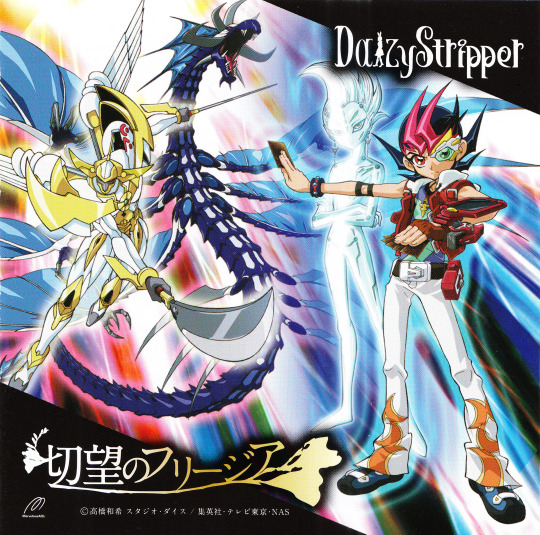




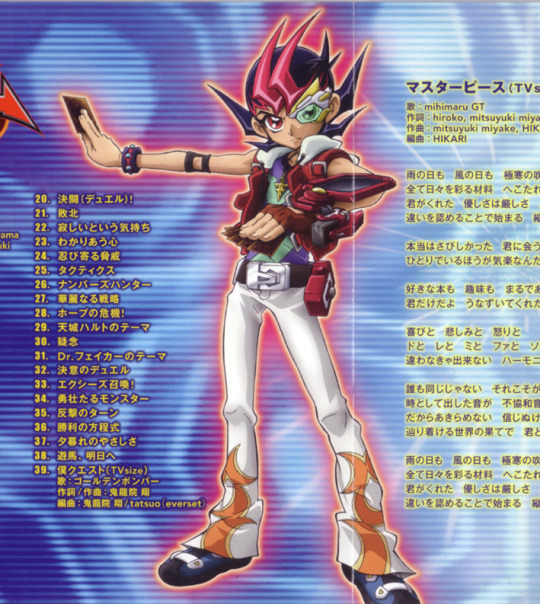
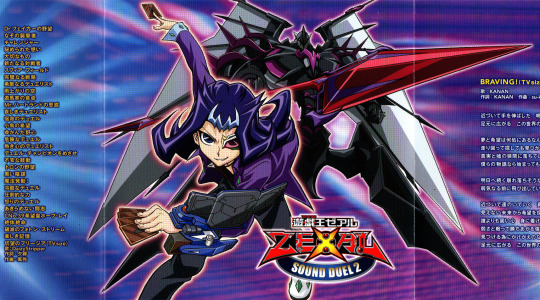
Some Yu-Gi-Oh! Zexal CD / Sound Duel scans
(the 1st showcased CD also came with an exclusive playmat)
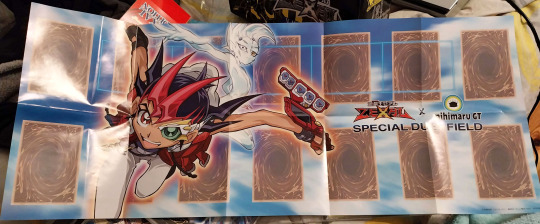

#zexal#yugioh zexal#yuma tsukumo#kaito tenjo#ryoga kamishiro#astral#kite tenjo#reginald kastle#hope utopia#no. 39#kotori mizuki#tori meadows#no. 17#YZA CD scans#YZA official art
61 notes
·
View notes
Text
Where is all the Solarpunk media?

Before reddit went to shit, I had posted this essay there, leading to some discussion. In the essay I spoke about my disappointment, that while Solarpunk started out as an idea for both a social movement and a fiction genre, most only know it as an aesthetic. And somebody said something interesting there: "You gotta see, that our equivalent to Cyberpunk's Neuromancer is a fucking yoghurt ad."
And this is true, kinda.
While Solarpunk traces its roots back to some climat fiction books and of course Studio Ghibli, there is barely any media in the Solarpunk genre. If you have a look at TV Tropes, you find only very few entries there and there is an argument to be had about half of them, whether they truly qualify as Solarpunk, as they might have the Solar-part down, but not the punk-aspect.
Sure, I could meanwhile offer a couple of examples myself that are not to be found on TV tropes (and maybe I am going to make a list here), but yeah... It is not much. And what there is in terms of actual Solarpunk fiction is mostly published by small publishers. Solarpunk games are all indie games. And Solarpunk movies... well, there are a couple of anime movies, but everything else I can think of are short indie movies.
And I think all of this is rooted in one or multiple of these three points:
Again, people struggle to imagine utopia. Not only writers/creatives, but even consumers. A lot of people consider utopian fiction "unrealistic" and "boring". Hence people do not know how to deal with this genre. On the side of creatives, on the side of the publishers and on the side of consumers.
Hope is scary. Both to the consumers, but also to the system. Because people, who have hope, are more likely to rebel. That sounds counter intuitive, but hopeless people will no longer fight, because they have nothing to fight for. This is why big companies, on whom we kinda rely for our media, might well have issues with Solarpunk as a genre. Especially as...
Solarpunk is inherently anti-capitalistic. So of course capitalistic companies that are behind any big, coporate media - no matter if it is AAA games or blockbuster movies - are not very interested in spreading the genre further. This is unquestionably also, why the genre and movement got boiled down to an aesthetic so much. Because Disney has no problem showing Solarpunk looking cities (Zootopia, Black Panther, some Star Wars), but they will most certainly not show a world that is no longer capitalist.
So... Solarpunk has kinda harsher conditions to start in as a genre.
Which is why I have started to write about this so much. Because I think, that fiction has power. And we should use it to inspire people.
Hope is important.
Hope is the future.
Support Indie creators!
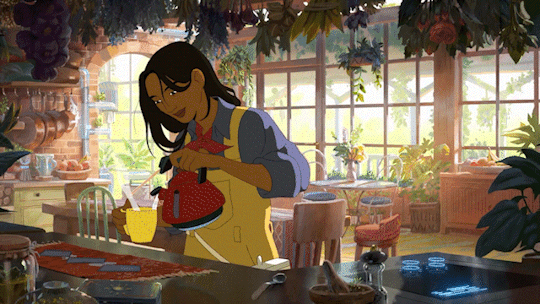
#Solarpunk#Solarpunk fiction#Solarpunk media#Where are all the solarpunk movies?#solarpunk novels#hopepunk#hope is a dangerous thing#utopia#utopian fiction
211 notes
·
View notes
Note
Heyo, you've mentioned that in your AU Crocodile isn't going to try to destroy Alabasta, so I was wondering if his end goal is still Utopia but he's going to try other methods or if he has a complete different end goal?
im thinking his main goal is to secure a safe future for luffy, this version of croc started baroque works and his schemes after luffy was born, so if he's aiming for a utopia of sort it'll mostly be for his kid.
#crocau ask#a 'it's all for you' 'thanks i hate it' sort of thing#the answer is a bit vague because im not sure how else to explain. canon croc's goals.... what are they really. whats up in his head.#an utopia is meant to be a good thing but for someone like him. what does that look like? why does he need pluton for it? is he trying to g#with that 'destroying redline is the final goal' theory thing? why does a villain that'll kill thousands like its nothing and calls out ppl#for having dreams and hopes work towards smth as idealistic as and impossible as an utopia? whats up with him. i really love the parallel#of embodiment of hope and freedom luffy vs nihilistic tyrant who got fucked over and lost all hopes to become pirate king. if their goals#turns out to have been similar all along. man. the croc intrigues me.
34 notes
·
View notes
Text
An (anarcho-pagan) Solarpunk Phantasy
Imagine a city in some possible future. It’s a beautiful place,
not so much because of the architecture or layout, but because
there are growing things everywhere. It doesn’t look much like
the cities of the past, but something more like a huge garden
with buildings in it. Parts of it are completely forested and
inhabited by wild animals. Others are given over to intensive
crop cultivation. The rooftops and yards of every building are
filled with vegetables and flowers. There are wells and streams
of clean, clear water. In the large and open public squares,
people of all types mingle freely to discuss local issues or daily
events.
No two neighborhoods are the same: each has a distinctive
personality and a different mix of cultures and religions. Not
everyone is Pagan, but Pagan religious practices are fully
accepted. Here and there throughout the city, you can see little
shrines to different gods and spirits. There are sacred groves and
holy trees, where people of any faith or no faith at all can go for
spiritual renewal without fear of persecution.
The business of governing—if you want to call it that—is done
on a neighborhood by neighborhood basis through directly
democratic communes. Every person of every type has an equal
voice, and an equal vote in the affairs of the commune. There
are no bosses, although different people exercise leadership in
different circumstances on an as-needed basis.
There is always work to do, from tending the vegetables or
making clothing to keeping the streets clean or teaching the
children, but there is no one forcing you to work for someone
else’s profit. Everyone contributes in whatever way seems best to
the individual, and everyone shares in the city’s wealth. There is
no charge for food, or for a place to live, or for necessary health care. When there is a need for exchange, people treat it as an
exchange of gifts.
People aren’t alienated from each other, they live and work
together in close proximity. If you have something you have to
do, there is never any question that someone will watch the
children. People sing while they work, or tell stories or jokes. As
evening falls, people dance and socialize.
The lifestyle of the city is in some ways a simple one, not reliant
on the constant use of high technology, but it isn’t anti-
technological. Technological knowledge is used extensively, but
only in ways that will not disrupt the basic health and balance of
the city’s ecosystem.
Capitalism fell—perhaps hundreds of years ago—but
civilization endures.
This is a utopian vision, I know. It’s a fantasy of the
imagination, but that doesn’t make it a useless daydream. By
imagining what my utopia would be, I free myself from what is. I
give myself the power to start working immediately for a better
world. If this is what my utopia would be like, then I know what
steps will bring us closer.
- Pagan Anarchism by Christopher Scott Thompson (published by Gods & Radicals)
#solar punk#solarpunk#anarchopagan#anarchism#paganism#animism#utopia#hope#studyblr#student#books and reading#bookish#study blog#witch books#folk witchcraft#traditional witchcraft#witch#witchcraft
9 notes
·
View notes
Text
i wish i had more collected and intellectual thoughts on jim and la’an. instead my brain just screams about them all the time
#ohhhh what if i was so cynical of everything. what if i was frigid and closed off and so afraid of other people#and i met someone with a passion for the universe. who loved everything and saw the beauty in it all. and just wanted to explore.#now am i talking about jim or la’an#my fave thing 2x03 does is subvert their traditional roles/characterisations#jim is suddenly that hardened survivalist who needs no one; la’an is wide eyed optimist who believes in the universe’s beauty#bc au jim is from another time!! where there is no earth for him to love!! there is so spock to keep him steady!! he’s lost his brother!!#and his planet!! and in turn his hope and awe#vs la’an from trek’s usual “”utopia“” who now has to convince jim HER timeline is worth saving#‘you could be an explorer’….. she says it with such wistfulness. wanting that role for herself in her own timeline#and YES ofc au jim is also full of whimsy and la’an is still very stiff but that hotel scene makes me crazyyyyyyy#i love how they make jim into the battle hardened soldier. and la’an has to become the beacon of hope#i think that makes her realise a lot about herself :)#i could talk about this episode alone for hours lol but i won’t bc i was meant to go to bed soon#me being like oh maybe i can get an early night :) BOOM struck down by noonirk thoughts#star trek#star trek snw#james kirk#la’an noonien singh#noonirk#ka’an#kirk x la'an
9 notes
·
View notes